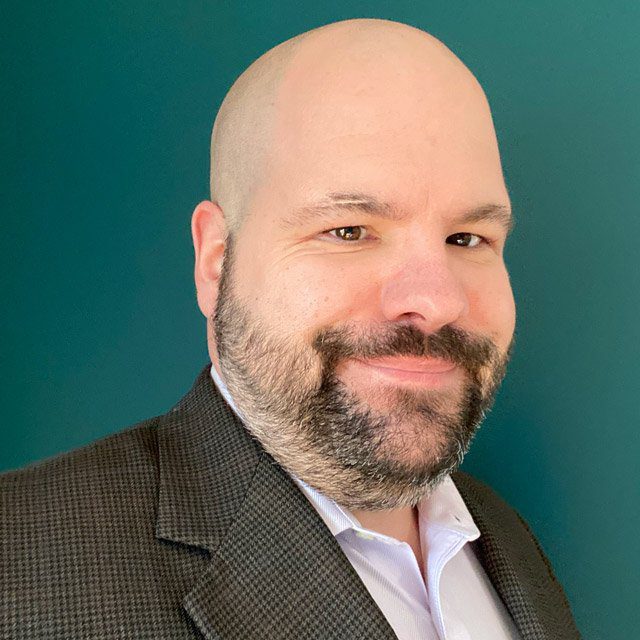5 Things Every Advisor Should Know About Childfree Clients

Jay Zigmont is a financial advisor with a background that is somewhat atypical for a financial services professional, having earned a doctorate in adult education and having spent the better part of a decade working in the health care industry.
Speaking with ThinkAdvisor about the mid-2021 founding of his firm, Childfree Wealth, Zigmont says his goal is to use his background and expertise (and a fresh certified financial planner designation) to serve a sizable and growing segment of the U.S. population that is poorly understood by traditional family-oriented wealth managers.
Zigmont points to research coming out of the University of Michigan that shows approximately one in five U.S. adults now identifies as “childfree,” which is a distinct category from “childless.” Those who are childless, he explains, simply do not have kids at the present moment. Those who are childfree, on the other hand, have made a conscious decision to permanently avoid having children for any number of reasons.
According to Zigmont, the childfree population has distinct planning needs from other populations. As a primary example, childfree people tend to have less of a need for estate planning. Of course, some may have a great interest in bequeathing assets to charitable or philanthropic causes, but this is a different matter compared with planning for wealth transfers to children.
On the other hand, childfree people may have more substantial long-term care insurance concerns and may be more open to proactively purchasing insurance products at earlier life stages than the typical client with kids. Childfree people are often less tethered to a given city or region and therefore may be more easily able to sell a home and relocate as part of a retirement planning strategy.
In many other key ways, Zigmont says, childfree adults simply have a different planning outlook.
Zigmont says any financial advisor will do well to consider ways to attract and serve this sizable and affluent group of clients — but they must be careful when doing so. In speaking with his growing stable of clients, Zigmont says he has already heard many stories about the ways financial advisors offend and alienate this group, often in a misplaced attempt to be friendly or funny.
For example, a financial advisor should not go into a conversation with a married younger person who does not have kids and say something along the lines of, “You don’t have kids today but of course you are going to change your mind in the future.”
As Zigmont explains, this type of assumptive language can make an advisor appear out of touch or, worse, judgmental and patronizing.
“The other mistake I hear about constantly is advisory professionals only referring to a ‘family’ as a unit that includes parents and children,” Zigmont says. “Children are part of a family, of course, but they don’t make the family.”
See the slideshow for more of Zigmont’s top tips when it comes to conscientious communications with childfree clients. His insights are informed by a newly completed survey project he took on earlier this year that compiles the experiences of some 300 self-identified childfree people.
1. Being childfree is not always a choice, but it often is.
As Zigmont wrote in his book about being childfree, “Portraits of Childfree Wealth,” the reasons for being childfree are as varied as the people themselves.
There are interrelated themes around why people choose to be childfree that range from medical to financial, social and environmental.
“And they are all valid,” Zigmont says.
One thing Zigmont has found surprising in his research is the number of people who comment that they did not realize until later in their life that there was even a choice to be childfree.
Notably, there appear to be very few or no regrets voiced by people who are childfree. There are some fears for the future, Zigmont says, but those are not regrets.
2. Being childfree does not make a person or couple richer.
Among the childfree, according to Zigmont’s experience and empirical research, there are people who are barely making ends meet and others who are financially independent.
“I do find that childfree people tend to have less debt than the average American,” Zigmont points out. “The way I look at it is that if you are childfree and barely keeping your head above water, you would drown if you had a child.”
Census data shows approximately 9% of the U.S. population as a whole are millionaires, while Zigmont’s survey of childfree people shows 13.4% in the sample are millionaires. This would seem to suggest a positive correlation between the childfree and higher levels of wealth, but the picture quickly muddies when one looks deeper at the data.
As Zigmont points out, in the U.S. Census’ study of childless adults over 55, single women without children had a higher net worth, on average, than other women, but their wealth is not significantly greater than that of single women with children.
Zigmont’s analysis of the childfree finds that 55.18% of survey respondents were married (or previously married), which is below the Census’ findings that 67.9% of people over 55 had been married.




